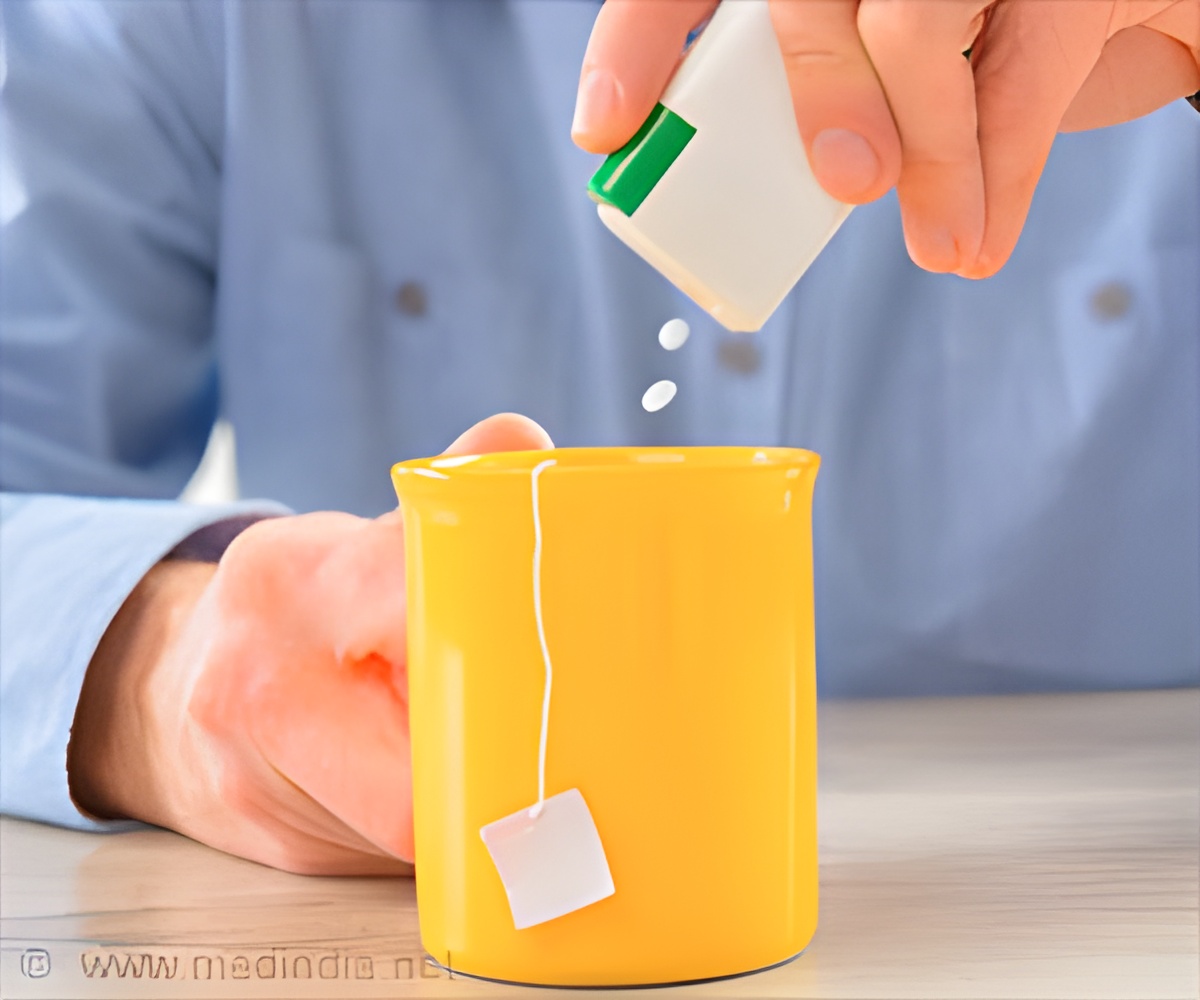Do artificial sweeteners affect the heart? Artificial sweeteners widely used as an alternative to sugar were associated with an increased risk of heart attack and stroke.

‘Substituting artificial sweeteners for added sugar in drinks, snacks and low-calorie meals for health benefits might be a bad choice for heart disease.’





Artificial sweeteners are widely used as no or low-calorie alternatives to sugar. They represent a $7200m (£5900m; EUR7000m) global market and are found in thousands of products worldwide, particularly ultra-processed foods such as artificially sweetened drinks, some snacks, and low-calorie ready meals.Several studies have linked the consumption of artificial sweeteners or artificially sweetened beverages (ASB) to weight gain, high blood pressure, and inflammation, but findings remain mixed about the role of artificial sweeteners in the cause of various diseases, including cardiovascular disease (CVD). But none have measured artificial sweetener intake from the overall diet.
Do Artificial Sweeteners Increase Risk of Heart Disease?
To investigate this further, a team of researchers at the French National Institute for Health and Medical Research (Inserm) and colleagues, drew on data from 103,388 participants (average age 42 years; 80% female) in France to investigate relations between nutrition and health.Dietary intakes and consumption of artificial sweeteners were assessed by repeated 24-hour dietary records and a range of potentially influential health, lifestyle, and sociodemographic factors were taken into account.
Artificial sweeteners from all dietary sources (beverages, tabletop sweeteners, dairy products, etc) and by type (aspartame, acesulfame potassium, and sucralose) were included in the analysis.
A total of 37% of participants consumed artificial sweeteners, with an average intake of 42.46 mg/day, which corresponds to approximately one individual packet of tabletop sweetener or 100 mL of diet soda. Among participants who consumed artificial sweeteners, mean intakes for lower and higher consumer categories were 7.46 and 77.62 mg/ day, respectively.
Advertisement
They also had lower total energy intake, lower alcohol, saturated and polyunsaturated fats, fiber, carbohydrate, fruit, and vegetable intakes, and higher intakes of sodium, red and processed meat, dairy products, and beverages with no added sugar.
Advertisement
The researchers found that total artificial sweetener intake was associated with an increased risk of cardiovascular disease (absolute rate 346 per 100,000 person-years in higher consumers and 314 per 100,000 person-years in non-consumers).
This is an observational study, so can’t establish the cause, nor can the researchers rule out the possibility that other unknown (confounding) factors might have affected their results.
Nevertheless, this was a large study that assessed individuals’ artificial sweetener intake using precise, high-quality dietary data, and the findings are in line with other studies linking exposure to artificial sweeteners with several markers of poor health.
Further prospective cohort studies need to confirm these results and experimental studies are needed to clarify biological pathways.
Source-Medindia















